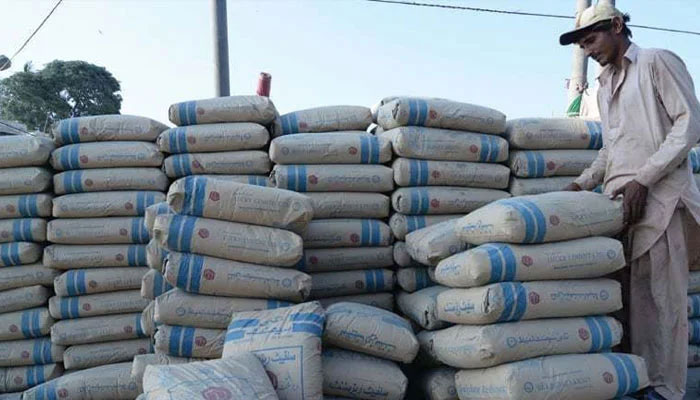CCP hosts session on disclosing material information on cement bags
CCP team also provided an overview of the Act with a particular focus on the significance of packaging and labelling standards for consumer safety
ISLAMABAD: The Competition Commission of Pakistan (CCP) Thursday organised a stakeholder engagement session on disclosure of “Manufacturing/Packaging and Expiry/Best Before” dates on cement bags.
Saeed Ahmed Nawaz, Member CCP, preside the session. The attendees included representatives from Pakistan Standards and Quality Control Authority (PSQCA), All Pakistan Cement Manufacturers Association (APCMA), Construction Association of Pakistan, Islamabad Chamber of Commerce and Industry (ICCI), Lucky Cement, Cherat Cement, Fecto Cement, Fauji Cement, Gharibwal Cement, Kohat Cement, Maple Leaf Cement, Attock Cement, Bestway Cement, among others legal fraternity, real estate sector and academia.
Ahmed Nawaz emphasised urgency of these measures to enhance consumer protection. “The non-disclosure of such material information not only misleads consumers but also poses a significant threat to fair-market principles under competition law, he highlighted”, he said.
During the session, the CCP team also provided an overview of the Act with a particular focus on the significance of packaging and labelling standards for consumer safety. The modalities for implementing CCP’s recommendations as per Policy Note of March 7 2024, were also discussed with the participants.
The industry’s executives said the date of packaging would be made public through “Track & Trace System” of FBR. The representatives of APCMA opined disclosure of such dates could potentially hurt the consumer’s interests.
All other stakeholders agreed the date of packaging and disclaimer about storage requirements and need for re-testing, where necessary, should be clearly mentioned on the cement bags.
The house decided to allow APCMA a period of three weeks to consult its members and apprise the Commission about the future course of action.
“This collaborative effort underscores the CCP’s commitment to ensuring consumer safety and satisfaction by advocating disclosure of material information in product packaging. The Commission remains committed to working closely with all stakeholders to ensure a smooth transition to new packaging and labelling standards”.
-
 Prince Harry Reacts As Beatrice, Eugenie's Names Surface In Epstein Emails
Prince Harry Reacts As Beatrice, Eugenie's Names Surface In Epstein Emails -
 Cyprus Joins European AI Race: What It Means For Greek LLMs And Regional Innovation
Cyprus Joins European AI Race: What It Means For Greek LLMs And Regional Innovation -
 Amazon Soon To Launch 'AI Content' Marketplace, Says Report
Amazon Soon To Launch 'AI Content' Marketplace, Says Report -
 Is AI Reliable For Health Advice? New Study Raises Red Flags
Is AI Reliable For Health Advice? New Study Raises Red Flags -
 WhatsApp Web Starts Rolling Out Voice And Video Calling For Beta Users
WhatsApp Web Starts Rolling Out Voice And Video Calling For Beta Users -
 Catherine O’Hara’s Cause Of Death Finally Revealed
Catherine O’Hara’s Cause Of Death Finally Revealed -
 Swimmers Gather At Argentina’s Mar Chiquita For World Record Attempt
Swimmers Gather At Argentina’s Mar Chiquita For World Record Attempt -
 Brooklyn Beckham, Nicola New Move Could Leave David, Victoria Reeling
Brooklyn Beckham, Nicola New Move Could Leave David, Victoria Reeling -
 Anthropic Criticises ChatGPT Ads As OpenAI Begins Testing Advertising In AI Chats
Anthropic Criticises ChatGPT Ads As OpenAI Begins Testing Advertising In AI Chats -
 YouTube Star MrBeast Acquires Step: Redefining Finance For Gen Zs
YouTube Star MrBeast Acquires Step: Redefining Finance For Gen Zs -
 Sarah Ferguson Plans Big Move To Cause ‘serious Damage’ To Andrew
Sarah Ferguson Plans Big Move To Cause ‘serious Damage’ To Andrew -
 Trump Nears 500 Press Interactions In His Second Term, Surpassing Former President Biden
Trump Nears 500 Press Interactions In His Second Term, Surpassing Former President Biden -
 Hailee Steinfeld Reveals Her Plans To Return To Music
Hailee Steinfeld Reveals Her Plans To Return To Music -
 Elon Musk Unveils SpaceX Plan For Civilian Moon, Mars Trips
Elon Musk Unveils SpaceX Plan For Civilian Moon, Mars Trips -
 MTG Commander Banned Update: Wizards Frees Infamous Instant-win Card
MTG Commander Banned Update: Wizards Frees Infamous Instant-win Card -
 Royal Family Braces For ‘final Blow’ As Andrew Scandal Deepens
Royal Family Braces For ‘final Blow’ As Andrew Scandal Deepens




